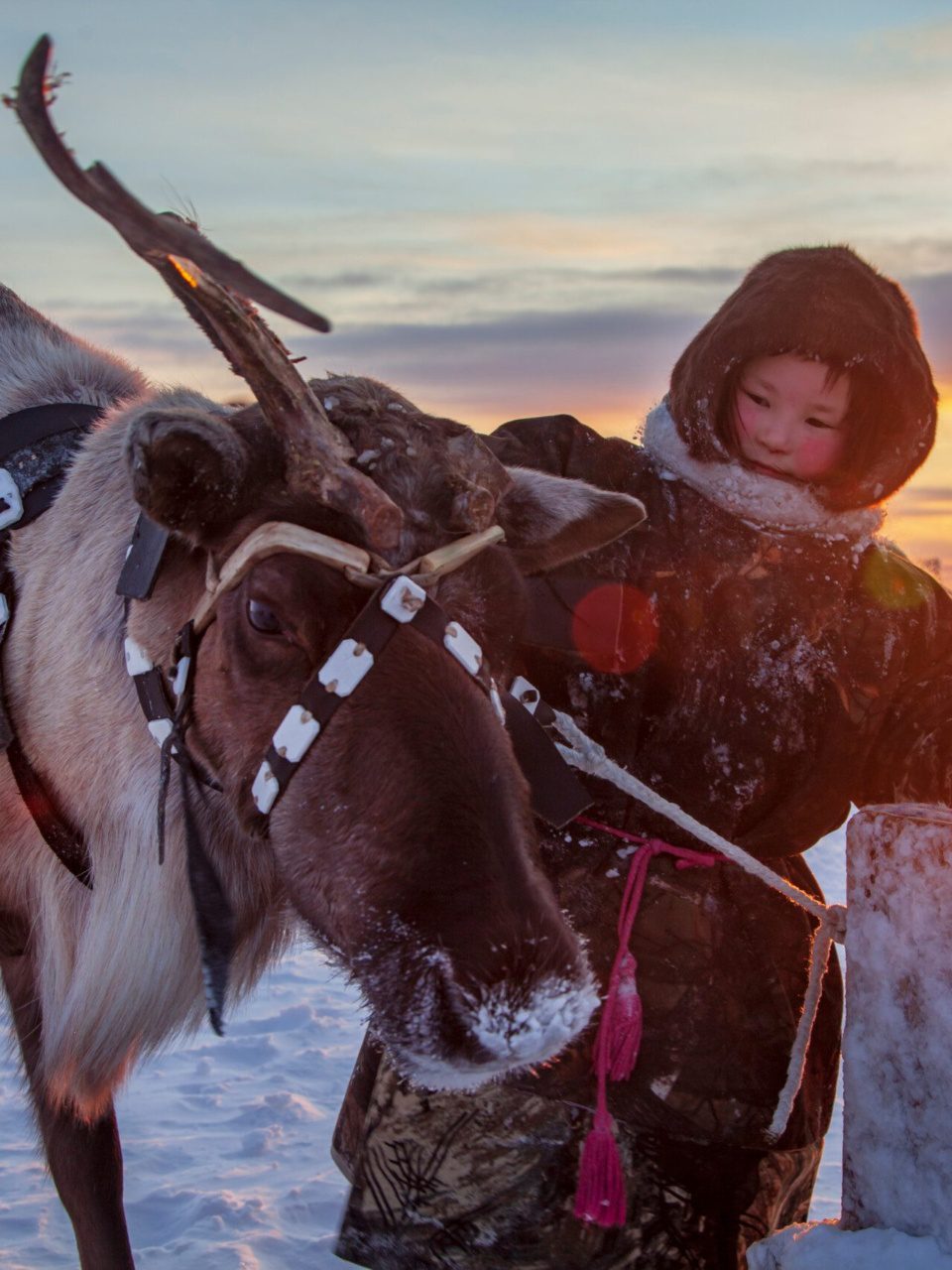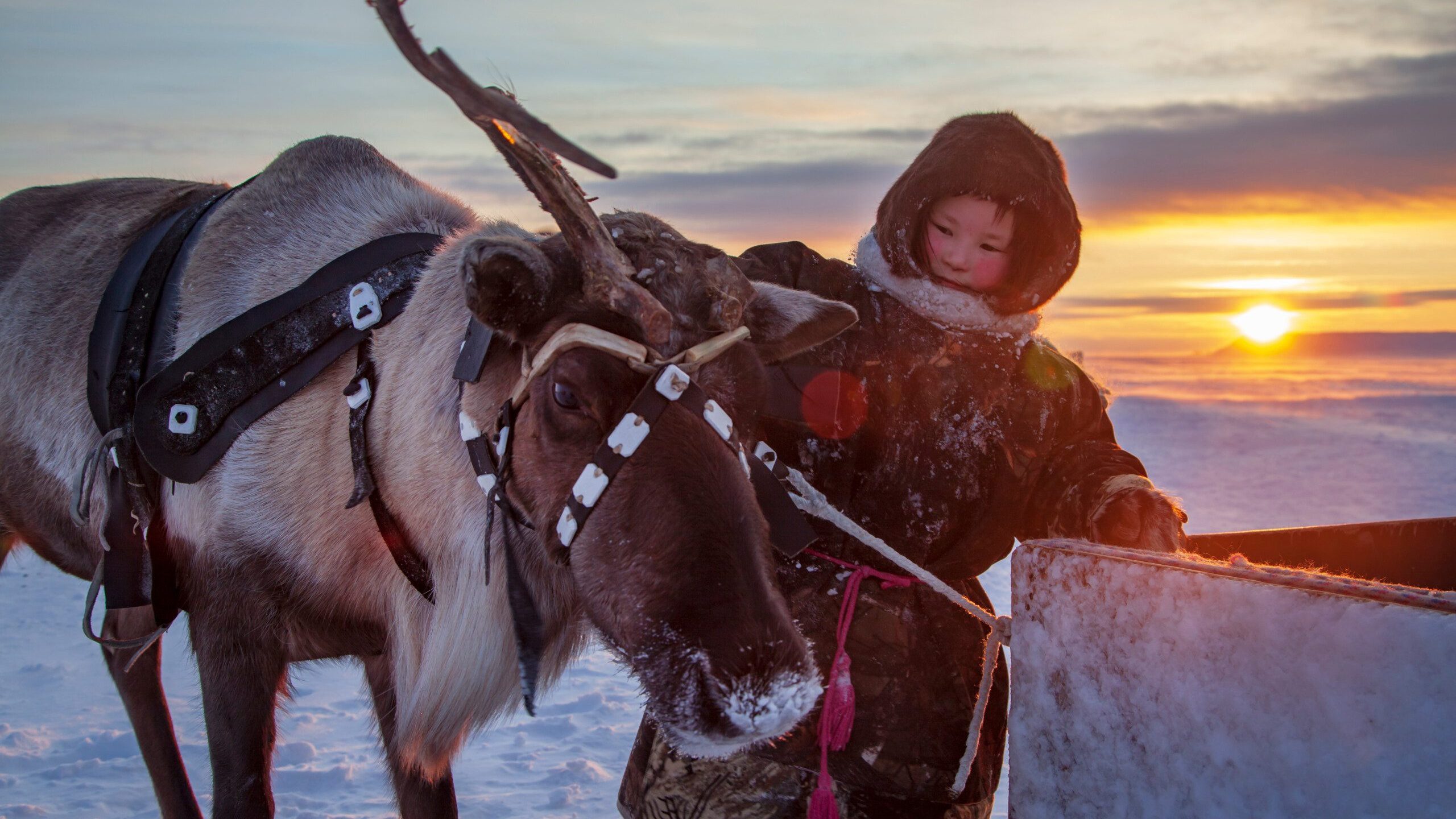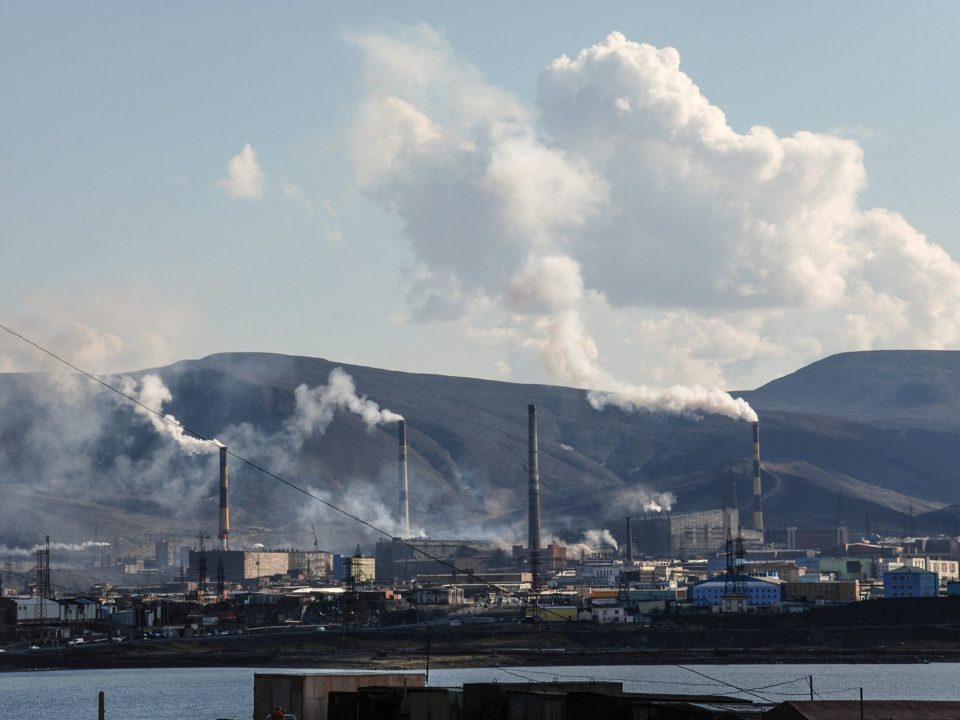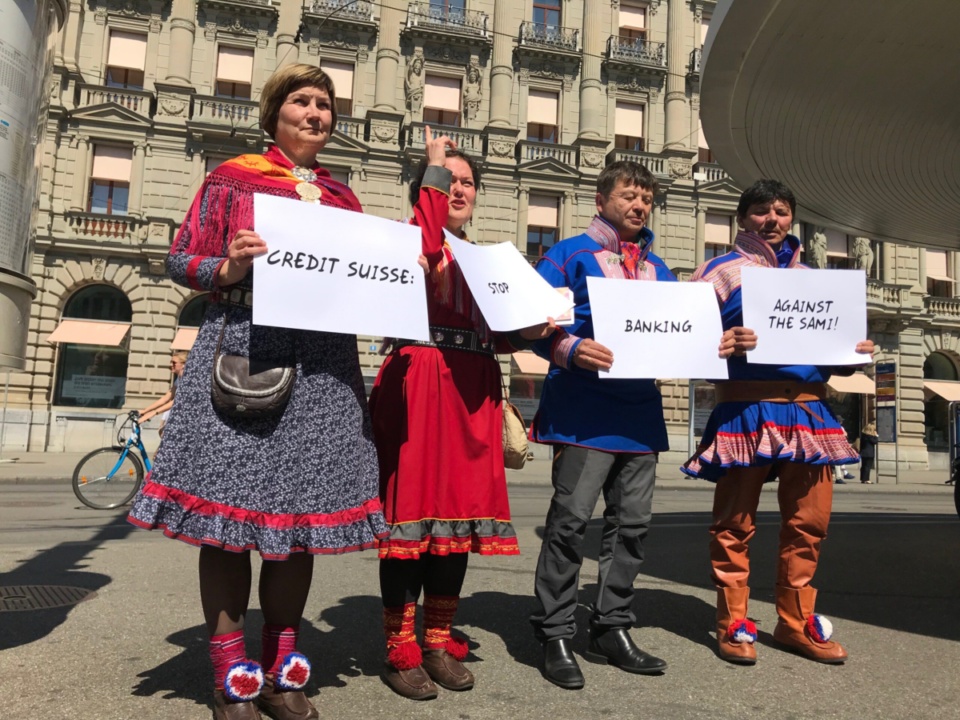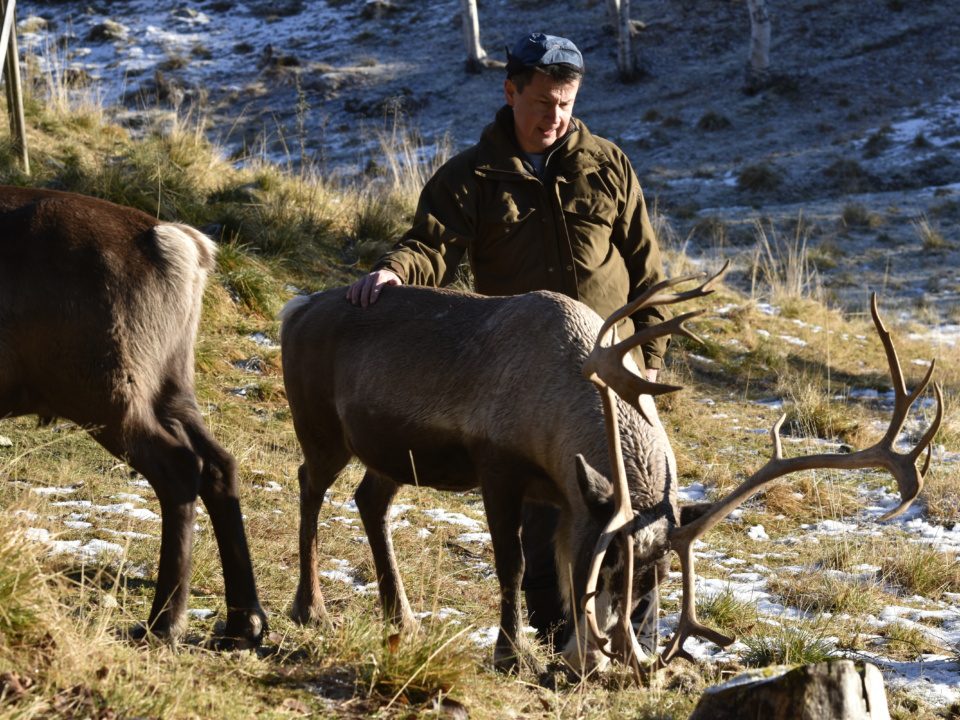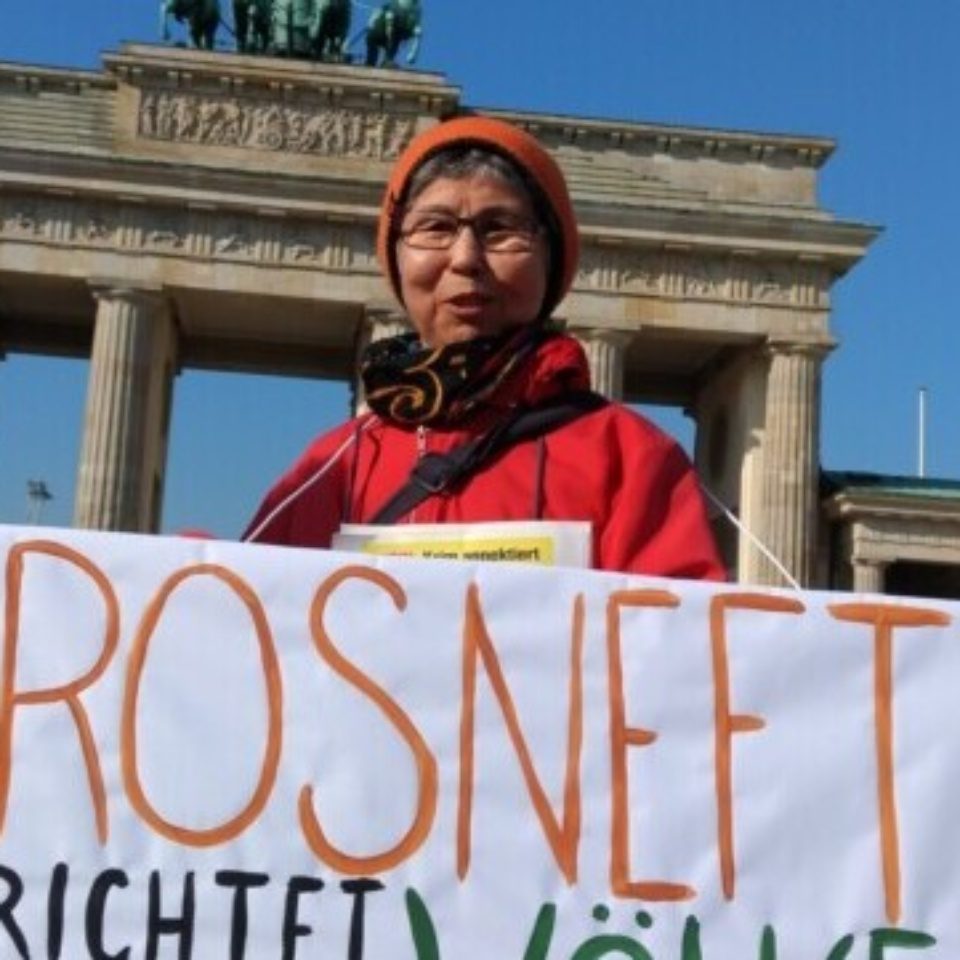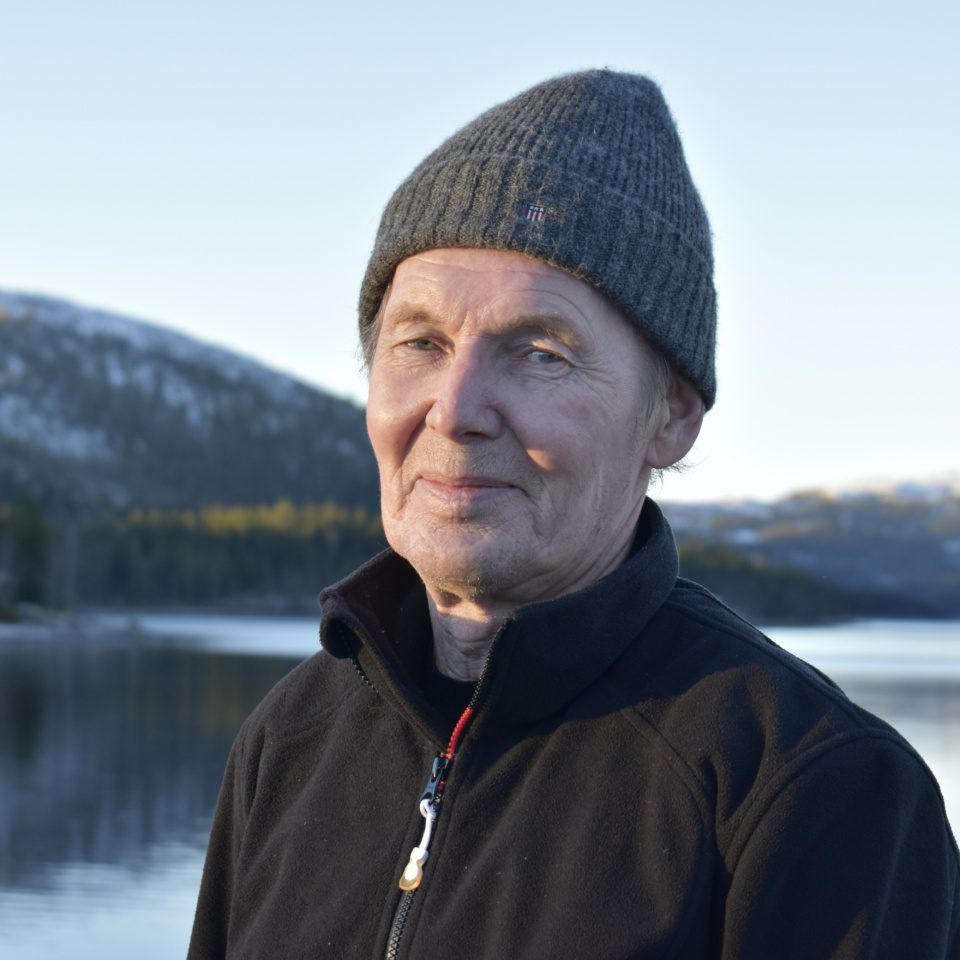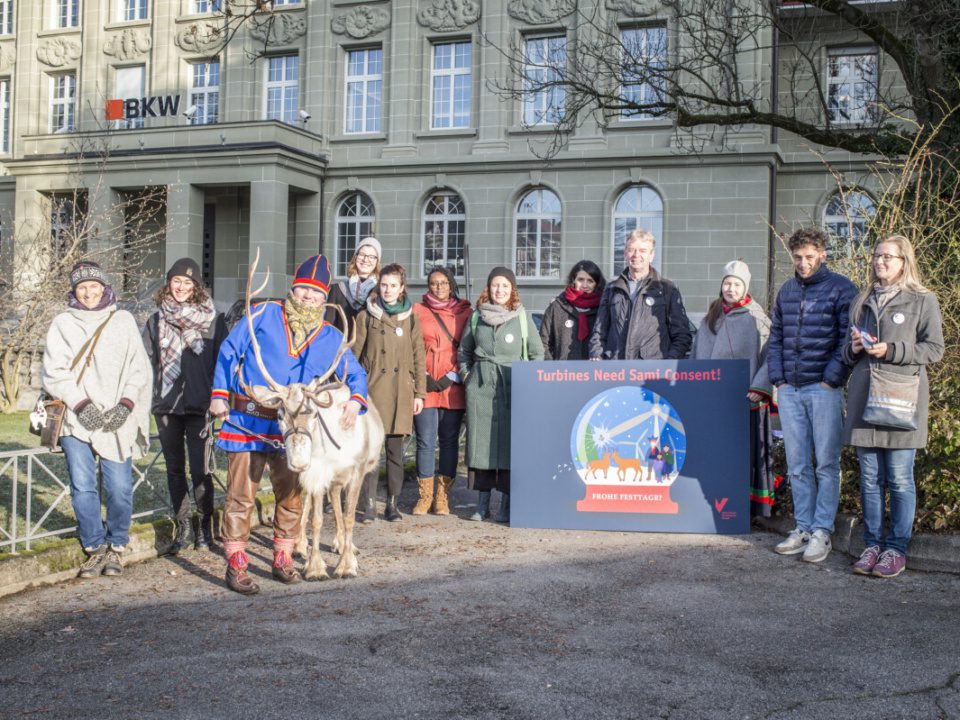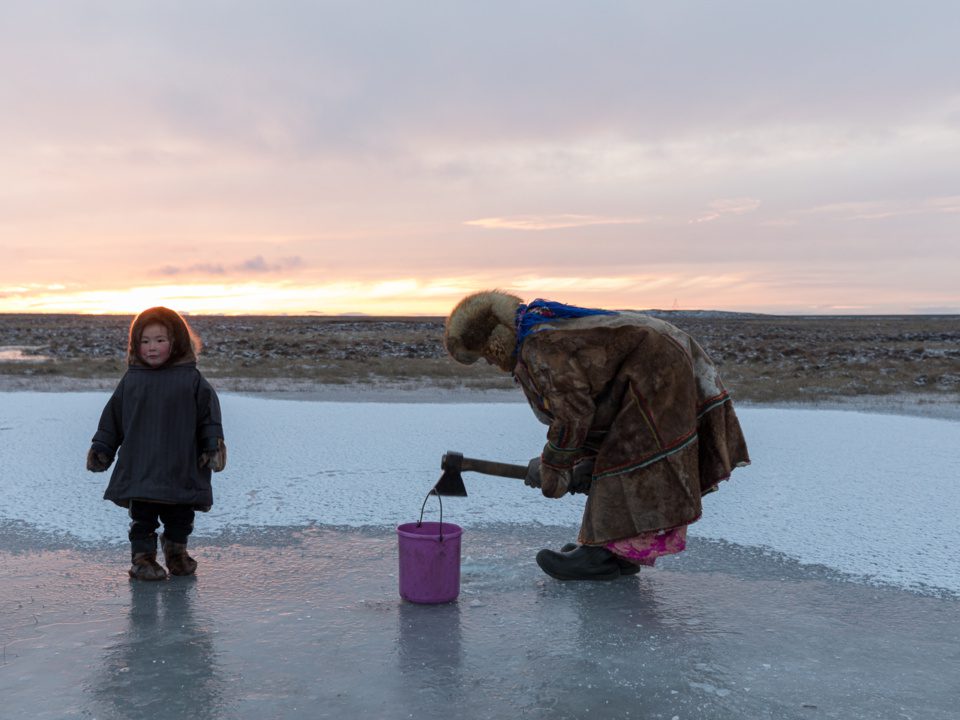Indigenous communities in the Arctic
Around 400,000 members of Indigenous communities live in the Arctic – that is around 10 percent of the Arctic population. This region encompasses parts of what are today the national territories of Norway, Sweden, Finland, Iceland, Russia, Greenland, Canada and the USA (Alaska). The landscape is characterised by sea, snow, ice, wetlands, fjords, islands and huge coniferous forests. It is the habitat of numerous fish, birds and mammals. The Arctic’s complex ecosystem plays a key role in the natural balance on Earth.
The Arctic is at risk though: Due to climate change, it is expected to be largely devoid of ice over summer as soon as 2035 – and forest fires will become more and more frequent. If the permafrost thaws and the ice melts, sea levels will keep rising and harmful greenhouse gases will escape from the thawing soils into the atmosphere, fuelling the climate crisis even further.
However, the Arctic is also at risk because companies are indiscriminately mining raw materials like copper, nickel, oil and natural gas. The melting ice has triggered a veritable ‘run’ on these resources. The Russian Arctic is particularly affected: Millions of tonnes of copper, nickel, iron ore, coal, lithium, oil and natural gas are to be found on the Taimyr, Yamal and Gydan peninsulas. The pressure is now spreading to so-called ‘transition minerals’, such as lithium and cobalt, which are needed for technologies involved in the ‘green’ energy transition. Companies are working flat out to plan and build new mines – with no regard for the right of Indigenous communities to have a say.
Climate change and a hunger for raw materials are destroying the habitats of Indigenous communities, such as the Sámi in Norway and the Nenets in Russia. Hunting, fishing and reindeer herding are at risk, rivers are being poisoned and entire landscapes are being cut up by major projects. In many cases, Indigenous communities struggling for their rights and for preservation of their habitat do not receive much support from governments. On the contrary, in Russia in particular, Indigenous activists are threatened and repressed by the government on a massive scale when they campaign for observance of their rights.
What the STP is doing for Indigenous rights in the Arctic
The STP supports Indigenous communities in the struggle for their habitat, for observance of their human rights and for their self-determination. In our programme, we focus geographically on Finland, on Scandinavia in general and on Russia, and actively promote corresponding demands:
Economic responsibility
The STP demands that commercial players respect the rights of Indigenous communities in all projects that have an impact on the latter’s territories, especially regarding the principle of free, prior and informed consent (FPIC). The STP is holding the involved Swiss firms to account, for example in the mediation procedure before the National Contact Point (NCP) for the OECD Guidelines for Multinational Enterprises.
Switzerland’s responsibility on a political level
Swiss foreign policy should do more for the environment and human rights in the Arctic, particularly within the Arctic Council, where Switzerland has observer status, but also by means of direct diplomatic intervention regarding Arctic countries.
Lobbying and advocacy work
The STP works closely with the exile organisation International Committee of Indigenous Peoples of Russia (ICIPR), supporting its lobbying and advocacy work at international and, where appropriate, national level. The STP assists Indigenous delegations, so that they can present their concerns to political and commercial players, as well as to international organisations.
Empowerment and capacity building
The STP provides support and assistance for projects run by Indigenous communities and organisations in the Arctic. However, in order to protect our partners from the Russian repressive apparatus, the exact activities cannot be reported publicly, as even cooperation with foreign NGOs can be dangerous for people in Russia.
Public relations work
The STP publicises the critical situation of Indigenous communities in the Arctic, thus supporting their work on the ground.
2023 Dangerous collaboration
As a result of the Russian war against Ukraine, the human rights situation in Russia worsened significantly. For security reasons, we were unable to report ongoing activities.
2022 Indigenous activists speak in Geneva about human rights in Russia
Some of the STP’s partners had to leave Russia, due to increasing state repression. By founding the exile organisation International Committee of Indigenous Peoples of Russia (ICIPR), they are now, even in exile, continuing to campaign for Indigenous rights in Russia. This was also the case in Geneva, where they spoke at a panel discussion co-organised by the STP and ICIPR. This served as a public side event in connection with a session of the UN Expert Mechanism on the Rights of Indigenous Peoples (EMRIP), at which several STP partners spoke about Indigenous rights in Russia.
2021 The program «Arctic life, indigenous rights now!» starts
The STP’s ‘Arctic life, Indigenous rights now!’ program was launched. Important alliances with Indigenous people from the Russian Arctic were established. Talks were jointly held for the first time with the resource company Nornickel, which is responsible for major environmental damage in Indigenous habitats.
2018 In front of the BKW headquarters, Sámi and the STP protest against a wind-farm complex
The STP protested with delegates from the Norwegian Sámi in front of the Bern headquarters of energy firm BKW. This firm, together with a consortium comprising the bank CS and other financial backers, was involved in financing a wind-farm complex that threatened the way of life of Indigenous Sámi.
Partner organisations
The STP works closely with partner organisations in the Arctic. Especially in Russia, the increasing state repression is putting our partners at risk in some cases – so in order to protect them, this is an incomplete list.
International Committee of Indigenous Peoples of Russia (ICIPR)
Contact person

